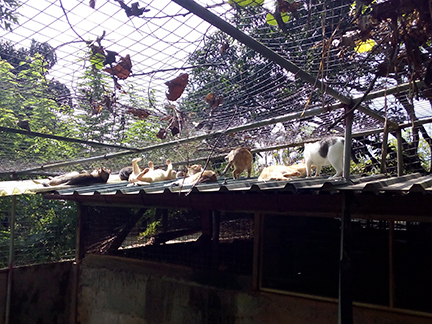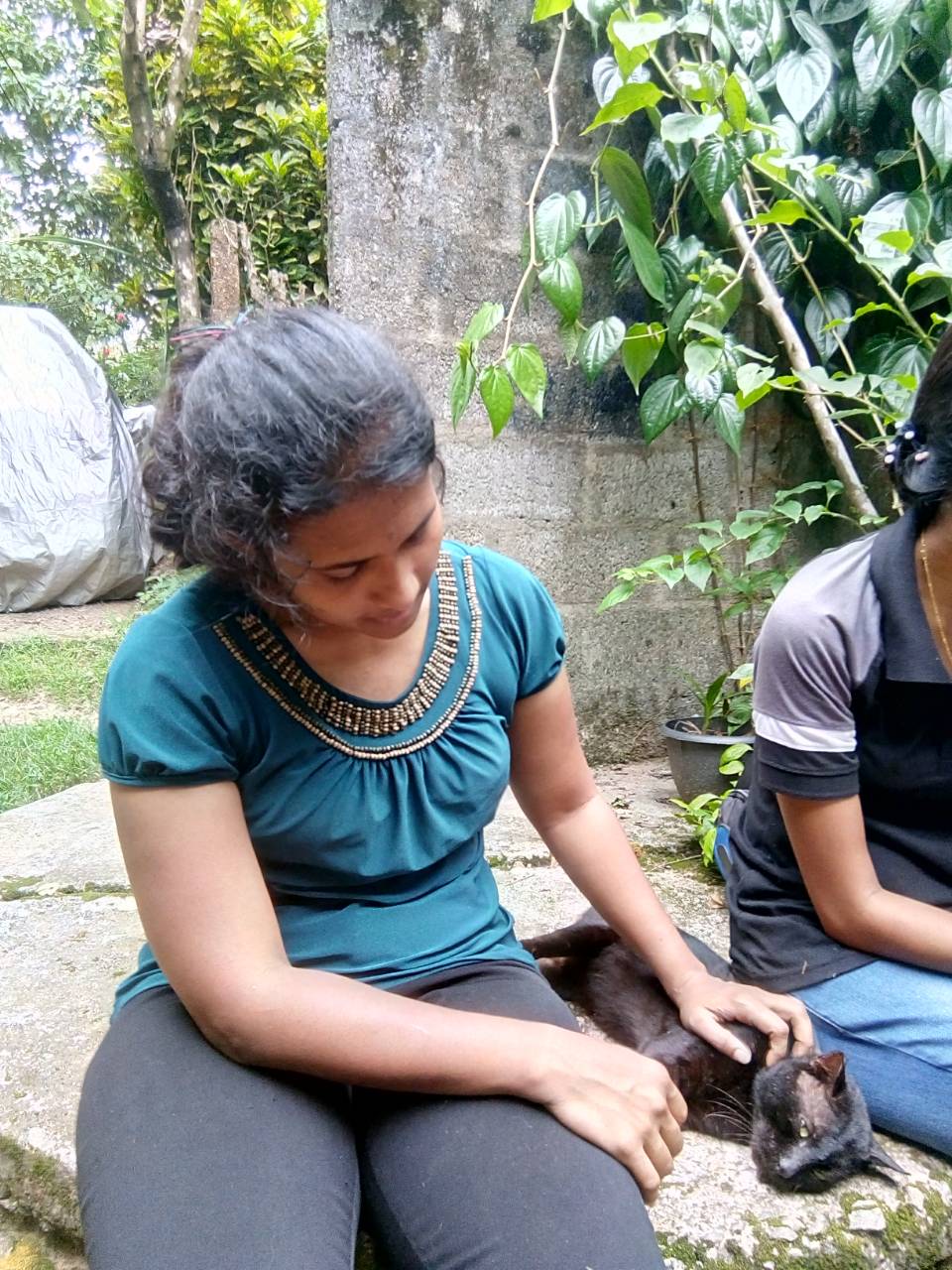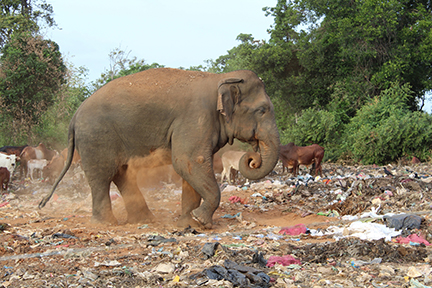Ruwini Rupasinghe
Ruwini Rupasinghe - Evaluation of the effects of environmental enrichment and genetics on behavior of geriatric cats
With the Global Feline Health and Underserved Community Research & Experience fellowships program, I was able to go to Sri Lanka in summer 2018, to research on domestic geriatric cats. This study has been already received the IACUC (animal use) approval from UC Davis and ethical committee approval from University of Peradeniya, Sri Lanka. In this project, I was able to work with Drs. Woutrina Smith, Eranda Rajapaksha and Saumya Wickramasinghe who gave me an enormous guidance from the very beginning. In line with the diversity of my interests, I am looking for a career that is multidisciplinary which requires many different types of skills. Therefore, this research study was a great opportunity for me to succeed my dreams.
The study was aimed on behavioral and genetic variations of geriatric domestic cats aged more than 7 years, along with the three different treatments: provision of a stuffed plush cat toy, a stuffed plush toy embedded with roots of the Acalypha indica plant, and no any toys, in a balanced study design. During each treatment period of 15 minutes, each cat was placed in a separate room with visual isolation. Behavioral changes of cats for each treatment were video recorded using a portable CCTV video recording system. As well as we collected buccal swabs of the cats for the genetic component of the study. Sample preparation and DNA extraction were done in the Molecular biology laboratory, Faculty of Veterinary Medicine and Animal Science, University of Peradeniya, Sri Lanka. Difficulty in finding older domestic cats in Sri Lankan set up was a major limitation we have come across in this study.
Engaging in this summer research provided me a lot of great experiences which are important as a veterinarian, research scientist and for my personal life. Throughout this study, I worked closely together with Meghan Foote from UC Davis and several students from University of Peradeniya. In addition to that, I was able to work with diverse group of professionals and non-professional communities such as behavioral scientists, geneticists, epidemiologists, veterinarians, cat owners, shelter workers, care takers and laboratory technicians, which gave me valuable experiences on multidisciplinary working environment. In addition to the benefits of learning and experiencing behavioral analysis and sample collection/preparation, I could identify the cat population dynamics in Sri Lanka and behavioral changes of cats towards Acalypha indica plant. As well as I could participate in several other projects such as study on microbiome of elephants inhabit dumping sites which helped me to broaden my research experiences.
As next steps, we are planning to evaluate the recorded videos to quantify cats’ specific activity levels (chewing, rolling, rubbing, grooming, locomotion etc.) associated with each enrichment device and the data will be statistically analyzed to make inferences on benefits of olfactory enrichment for cats. As well as I am planning to study five candidate genes that are responsible for the sense of smell in cats using extracted DNA with regard to the behavioral changes for each enrichment status which will improve my experiences and knowledge on molecular genetics and data analysis. With the interest built with this project, I am expecting to extend this study to California state by improving the limitations of the Sri Lankan study, thereby to produce an interesting study as my final project for the MPVM program, UC Davis. I am grateful to UC Davis Office for Global Programs and all of my mentors of this project for providing me this precious summer experience.



